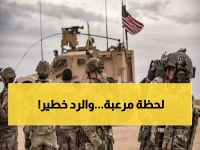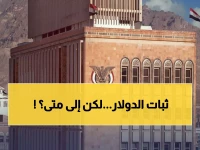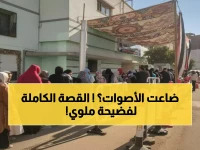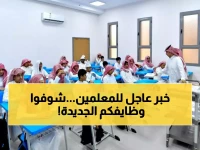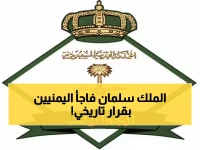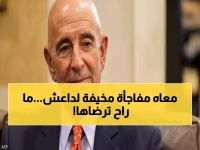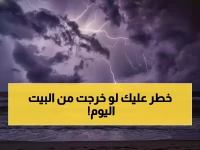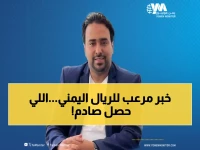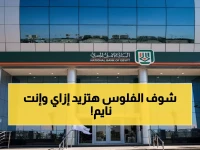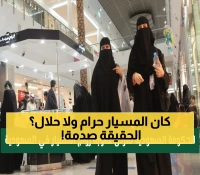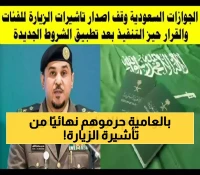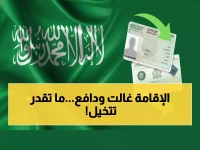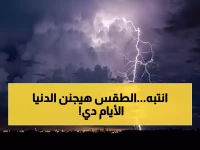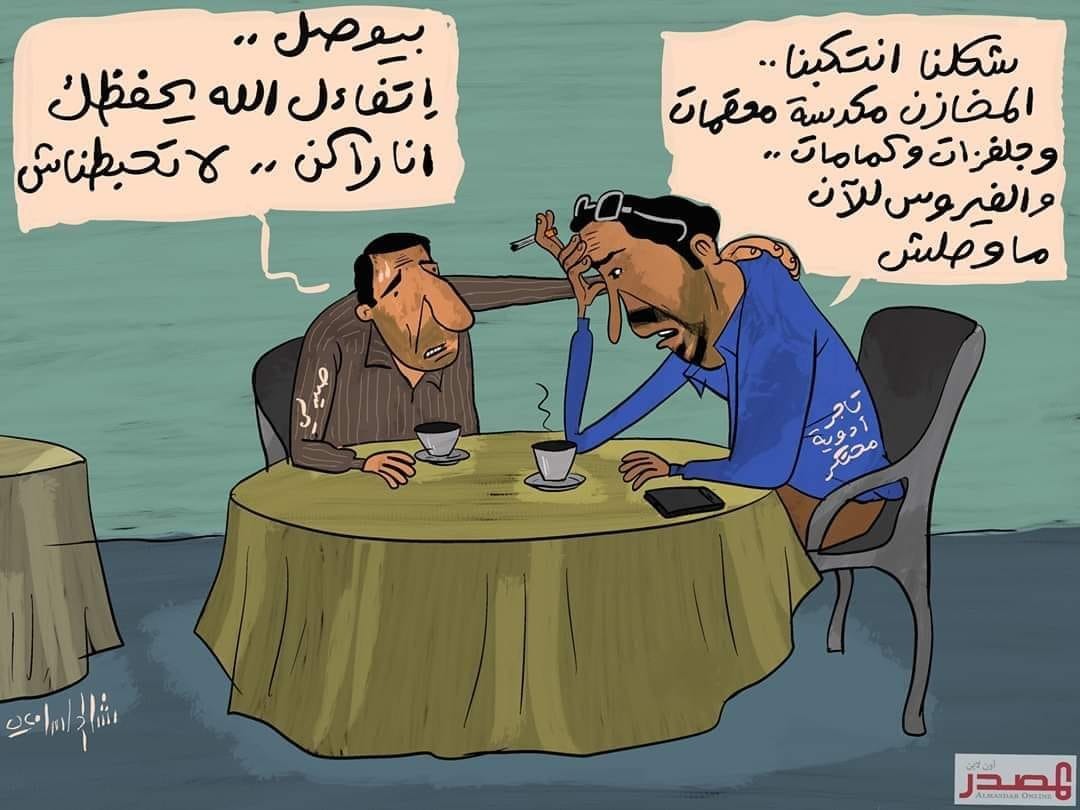اتهم تقرير المبعوث الأممي إلى اليمن جمال بن عمر الأخير، ضمنيا المخلوع علي عبدالله صالح ونجله العميد أحمد علي، كأبرز معرقلي عملية الانتقال السلمي للسلطة في اليمن، لكنه سرد قائمة عراقيل وأطرافا أخرى.
وكان مجلس الأمن الدولي عقد مساء الثلاثاء الماضي جلسة مغلقة للاستماع إلى تقرير مساعد الأمين العام للامم المتحدة جمال بن عمر، الذي اشار فيه إلى أهم النقاط المتعلقة بالانتقال السياسي، وكذا اهم التحديات التي قال انها ما تزال حاضرة بقوة وتقف حائلا امام عملية التسوية في اليمن.والذي يعد الجانب الأمني اهم تلك التحديات.
وأضاف أن التقرير تحدث عن ضرورة "دعم القرارات الأخيرة المتخذة من قبل الرئيس هادي، والمتعلقة بإعادة هيكلة الجانب العسكري". مشيرا إلى ان الهجمات على وزارتي الدفاع والداخلية ، شكلت أحد التحديات التي تحدث عنها التقرير إلى جانب خطر تنظيم القاعدة وانتشار الجماعات المسلحة في عدة مناطق في اليمن.
وكشف كبير مستشاري بن عمر عن أن التقرير قال "إن الذين هاجموا وزارة الدفاع هم جنود من داخل الحرس الجمهوري الذي يترأسه نجل الرئيس السابق، وإنه (الهجوم) أتى كرد فعل على قرارات الرئيس الأخيرة المتعلقة بإعادة هيكلة الجيش".
ولم تقتصر التحديات المستمرة في وجه العملية الانتقالية على التمردات العسكرية على قرارات هادي. بل تعدت حسب تقرير بن عمر إلى استهداف البنى التحتية والخدمات الاساسية مثل استهداف انابيب النفط وابراج الكهرباء.وقال ان استمرار تلك الهجمات تشكل أحد الدوافع الأساسية لجعل مجلس الأمن يتخذ قرارا دوليا بتطبيق عقوبات على الأطراف المتورطة فيها.
قد يعجبك أيضا :
فقد تحدث التقرير "عن استمرار الهجمات على البنى التحتية، والتي تهدف إلى زعزعة البلد اقتصاديا، ما يجعل الكثير من اليمنيين ينتظرون أن يتخذ مجلس الأمن خطوات باتجاه تنفيذ القرار 2051 الخاص بتطبيق عقوبات دولية (وفق المادة 41 من الفصل السابع)، ضد الجهة المتورطة في عرقلة عملية الانتقال".
وذكر تقرير بن عمر أن "اليمنيين يشعرون أن الذين لا يرغبون بالتغيير السياسي ربما هم الطرف الذي يحاول زعزعة اقتصاد وأمن البلد، وضرب بنيته التحتية".لكنه لم يسمِّ طرفا بعينه كمتهم بالوقوف وراء الهجمات على البنى التحتية.
واشار التقرير إلى وجود جماعات وأطراف مسلحة تعمل على تقوية وجودها في أماكن كثيرة من اليمن، وتمارس التضييق الشديد على المواطنين.مثل الهجمات المتبادلة في الشمال مثلا، وعن استمرار الصراع بين الحوثيين وبعض القبائل والسلفيين في عمران وحجة والجوف وصعدة.معتبرا ان تلك الميليشيات المسلحة المنتشرة في البلد بشكل عام تعد احد أبرز العراقيل التي تواجه انتقال السلطة في اليمن.
كما تحدث التقرير عن "عدم مغادرة المخلوع صالح للساحة السياسية"، حيث اشار التقرير إلى ان مواصلة الرئيس السابق وابنه وعائلته وأطراف أخرى ممارسة العمل السياسي ، لا تزال تشكل مطلب المعارضة في الشارع".
.... إلى نص التقرير:
" يمن برس " ينشر النص الحرفي لتقرير مساعد الأمين العام للأمم المتحدة – المبعوث الخاص لليمن جمال بن عمر وفقا لقرار مجلس الأمن 2014 (2011) والقرار 2051 (2012)
السيد الرئيس،
1. لقد عدت لتوي مع فريقي من اليمن، حيث مكثت من 6-16 سبتمبر، زيارتي الرابعة عشر. تدخل المجلس الجاري بشأن اليمن،
بما في ذلك تصريحات صحفية في الأسبوع الماضي ندين الهجمات الإرهابية الغير مبررة، دليل التزامكم المستمر للانتقال سلمي المتفاوض علية في اليمن، مع العلم بالعقبات التي يمكن أن تعرقل نجاح هذا الانتقال. والواقع أنه لازال هناك عدد من التحديات التي لا تزال ساحقة.
2. خلال هذه الإحاطة، سوف أتناول التحديات الراهنة لكم، وتحديد أي عرقلة للتقدم، اين امكن في الاخير، سوف توفر زيارتك فرصة مهمة لتثبت لؤلئك المساهمون في عدم الاستقرار اليمن أن مجلس الأمن متنبها مشاركتهم بعناية. ومع ذلك، أنا لا أتمنى أن يساء فهمي أن أنباء قاتمة فقط .
الحكومة، في إطار أشراف الرئيس هادي قد أحرز تقدم، بالنسبة إلى عدد من المهام الانتقالية التي سوف توضح أيضا.
3. اسمحوا لي أن أبدأ مع الوضع الأمني خلال هذه الفترة المشمولة بالتقرير. قد كانت هناك عدة هجمات ضد المنشآت الحكومية والأفراد من أنصار الشريعة، والحوادث الخطيرة التي استهدفت شخصيات عسكرية مهمة. وقد أدى الهجوم الحكومي ضد القاعدة لنزوحهم من أبين وتسلل تابعيهم إلى مناطق أخرى من البلاد بما في ذلك كبرى المراكز الحضرية. أكثر من اثني عشر محاولة اغتيال بارزة حدثت. وقد أدى الهجوم الأخير الذي استهدف وزير الدفاع إلى عدد من القتلى وهب المحاولة السادسة التى واجها الوزير، بمثابة تذكير صارخ بهذا التهديد.
4. التهديدات الأمنية الكبيرة، وخاصة لأعضاء الحكومة و القادة العسكريين، سوف تظل على الأرج، الجماعات المسلحة لمنافسة تعزز مواقعها وغالبا يخوفون السكان المحليين في عدة مناطق في البلاد.
دعوة من محافظ تعز من أجل حظر عرض السلاح في المدينة وقد أهملت من قبل الجماعات المسلحة دعم أي من الجانبين، مما يقوض السلطة المدنية.
5. في الجنوب، بالإضافة إلى حملة لطرد تنظيم القاعدة، مواصلة مواجهات متفرقة بين عناصر مسلحة من حركة الحراك وقوات الأمن .هناك تقارير تزعم أن بعض المتطرفين هناك تقارير تزعم ان عناصر من حركة الحراك يتلقون دعم مالي ولاوازم من خارج اليمن، وتمكينهم من تقديم التدريب والحصول على أسلحة.
هناك أيضا تقارير تشير إلى أن عناصر الحراك تشكل تحالف مع حركة التمرد الحوثي في الشمال.
6. في الشمال،استمرار اشتباكات بين الجماعات القبلية يقال انها تابعة لحزب الإصلاح والحوثيين . وقد كانت هناك أيضا مواجهات بين الحوثيين والقبائل المحلية والسلفيين في عمران وحجة، والجوف وصعدة. وقد وضع الحوثيين مواقع دفاعية جديدة. والذي يعتبر دفعه مقدما من قبل الحوثيين، في محاولة للسيطرة على المنطقة الساحلية والموانئ، وبدأت الآن لدفع مزيد من الشرق إلى حادة أخرى المناطق التي تسيطر السلفية للعمران. وقد سيطر الحوثيون بالفعل على حركة الطريق الرئيسي بين عمران والحدود السعودية، ومع التوسع، فإنها الآن تؤثر بشدة على حرية التنقل بين عمران وحجة.
7. في صنعاء، خلال شهر رمضان، عناصر من قوات الأمن المفترض ان تكون تحت قيادة الحكومة شنت هجمات على كل من وزارة الداخلية و وزارة الدفاع. الهجوم على وزارة الدفاع قبيل عطلة العيد قام بها مئات الجنود المرتبطين بالحرس الجمهوري -تشكيل يرأسها نجل الرئيس السابق صالح ، أحمد علي. قد تخلوا عن قتالهم السابق لتنظيم القاعدة في أبين ونقله إلى العاصمة في تمرد مفتوحة.
8. وقد جاءت هذه الهجمات استجابة لقرارات الرئيس المتعلقة بإعادة تعيين للقوات معينة لأوامر مختلفة. هذا يأتي على رأس عدة حوادث سابقة فيها قرارات من الرئيس للسعي لإزالة بعض من كبار القادة العسكريين المعينين من قبل الرئيس السابق صالح ، ابنة احمد وغيرة من الاقارب في المناصب القيادية في القطاع الأمني، مما يؤدي إلى اعتماد القرار 2051 (2012). ومع ذلك، فإن الرئيس استمر في جهوده الرامية إلى إعادة تنظيم القطاع الأمني على الرغم من أن تعليماته في كثير من الأحيان تم مقاومتها علنا. في الواقع، الأسبوع الماضي، في أعقاب الهجوم على وزير الدفاع، عين رئيسا جديدا للأمن القومي وغيره من كبار القادة بما في ذلك التعيينات المحافظين. الهجوم الأخير على السفارة الأمريكية في صنعاء وفشل قوات الأمن اليمنية في حماية مباني السفارة هو تذكير بضرورة الإسراع في إصلاح القطاع الأمني.
9. بشكل عام، فإن هذه التطورات تشير إلى أن سلطة الدولة لا تزال تحت التقويض. في الواقع الشخصيات المحلية البارزة والقوية بدأت في إثبات وجودها بدلا من الحكومة، من خلال الترهيب وقوة السلاح. وبالمثل فان البيئة الأمنية الصعبة، فإن الوضع الإنساني لا يزال يائسة، مع ال 10 مليون، نصف السكان يعيشون في انعدام الامن الغذائي،زميلي، السيد فيليب لازاريني، سيشرح بتفاصيل اكثر عن الحالة الإنسانية. في وقت سابق من هذا الشهر، تعهد المانحون ب 6،4 $ مليار دولار لدعم اليمن وقد ساهمت السعودية ب 3.25 دولار مليار، للتغلب على تحديات التنمية والإنسانية في المؤتمر الذي عقد في الرياض الاجتماع القادم لأصدقاء اليمن القادم في 27 سبتمبر المقبل سيعطي فرصة أخرى للحصول على الدعم الدولي لليمن.
10. وبالنظر إلى التحديات الكثيرة التي تواجهها اليمن، فمن غير المستغرب أن يتم منع الحكومة من تأكيد سلطتها الكاملة والعمل على نحو فعال. وعلاوة على ذلك، الخلاف العميق بين الكتلتين السياسية الرئيسية التى تشكل حكومة الوحدة الوطنية ما زالت مستمرة. وسائل الإعلام التابعة لكلا الجانبين تفاقم هذه الفجوة من خلال المساهمة في حزبية قاسية. الرئيس السابق صالح لا يزال يمارس مهامه كقائد للحزب المؤتمر الشعبي العام. خلال الحدث الاخير لحزب المؤتمر ،في مخاطبة الجمهور، قام بتجريح حكومة الوحدة الوطنية، على الرغم من حقيقة أن نصف الحكومة تتألف من أعضاء حزبه مما أدى بالتالي المظاهرات مدبرة ضده.
11. بالإضافة إلى عدم الاستقرار العام وعدم اليقين السائد في البلاد، فقد استمرت الهجمات ضد البنية التحتية الاقتصادية، ولا سيما قطع خطوط انابيب النفط، والتي تهدف بوضوح الى زعزعة استقرار البلاد. وهو ضد هذه الخلفية أن العديد من اليمنيين حريصون على رؤية المجلس في اتخاذ الإجراءات التالية حتى القرار 2051 (2012). أنهم يشعرون بأن أولئك الذين لا يستطيعون تقبل السياسية قد تكون مرتبطة مع تغير محاولة لزعزعة استقرار الاقتصاد البنية التحتية اللازمة من خلال الهجمات التخريبية.
12. بينما الرئيس السابق صالح لم يغادر الساحة السياسية، وابنه يحتفظ بالسيطرة على الحرس الجمهوري،والتي ربما تعتبر اقوى وحدة عسكرية في البلد. إزالة ابنة و الأعضاء الآخرين من عائلة او دائرة صالح لا يزال مطلبا رئيسيا للمعارضة على الشوارع.
13. مع التطورات السياسية الأخيرة ، يتم تشكيل تحالفات جديدة من القوى السياسية.حزب المؤتمر الشعبي العام وحتى أجزاء من أحزاب اللقاء المشترك تعتقد أن حزب الإصلاح هو المستفيد الرئيسي في هذا التحول السياسي، والاستفادة من التعيينات الأخيرة التي تسمح بتوسيع نفوذه في الحكومات المركزية والمحلية. انقسامات بدأت تظهر الآن في المؤتمر الشعبي العام وأحزاب اللقاء المشترك على حد سواء على الرغم من المظهر المتماسك. سنرى كيف هذا سيؤثر على مؤتمر الحوار الوطني المقبل والخطوات التي تمر بمرحلة انتقالية أخرى.
السيد الرئيس،
14. في حين كانت هناك إيجابية في تطورات حقوق الإنسان مثل تراجع العنف ضد المتظاهرين المسالمين، والعدد المتزايد من منظمات المجتمع المدني المسجلة قانونيا، وزيادة الاهتمام في القضايا النسائية ومشاركتهن في عملية الحوار الوطني وحقوق الإنسان الأساسية تبقى دون معالجة. ومما يثير القلق هو استمرار احتجاز الأفراد من قبل قوات الأمن الحكومية دون اتباع الإجراءات القانونية، والقضية التي لم تحل لؤلئك الذين تم اعتقلهم من احتجاجات العام الماضي، والاحتجاز الغير القانوني للأفراد من قبل الجماعات المسلحة والميليشيات.
15. سيادة القانون لا تزال هشة في جميع أنحاء البلاد، بما في ذلك في العاصمة صنعاء وعلى وجه الخصوص المناطق التي شهدت الصراع مثل أبين في الجنوب وصعدة في الشمال. غياب السلطة الحكومية العامة في هذه المناطق أدت إلى فراغ في إقامة العدل. في أبين، على الرغم من تراجع القاعدة في جزيرة العرب، ليس هناك وجود لمؤسسات الدولة بما في ذلك تنفيذ القانون وجود قضاء فعال. حتى الآن، القانون والنظام في معظم أبين حد كبير في أيدي الميليشيات القبلية، من خلال اللجان الشعبية. في صعدة السيطرة الفعلية لا تزال مع الحوثيين.
16. تشير التقارير إلى استمرارية تجنيد الأطفال من قبل القوات الحكومية وجماعات المعارضة المسلحة. تقدم ضئيل أحرز فيما يتعلق بعودة وإعادة إدماج الأطفال في الحياة المدنية.
علاوة على ذلك، اعتماد قانون العدالة الانتقالية وإنشاء لجنة مستقلة تأخر طويل، ولكن، قد تم التأكيد لي بانه سيتم معالجة هذه القضايا خلال هذه الزيارة.
.17. الساعة ظلت تدق مع المرحلة الانتقالية وهناك بالفعل حالات التأخير متعلقة بالقرارات الرئيسية المتعلقة بشأن القضايا الانتخابية. وقد ألححت جميع الاطراف للتحرك قدما في إنشاء لجنة انتخابية جديدة لتمكين انتخابات ان تتم كما في الوقت المخطط له . أتوقع أن يكون هناك تطورات في هذا الشأن في المستقبل القريب.
السيد الرئيس،
18. صحيح أن كل هذه المشاكل خطيرة، وأنها سوف تستمر في وضع الانتقال في اليمن في خطر. الرهانات لا تزال مرتفعة. ولكن من ناحية أخرى، هناك بعض المؤشرات المشجعة. مع نقاط وقف وبدايات، والإحباط والتأخير، عملية الانتقال في الواقع تتحرك ببطء إلى الأمام. هذا ينطبق بشكل خاص على الأعمال التحضيرية لمؤتمر الحوار الوطني والتي تعتبر خطوة مهمة في المرحلة الانتقالية.
19. الحوار الوطني سيسمح لجميع شرائح المجتمع في اليمن إلى المشاركة في عملية تشكيل النظام السياسي الجديد الذي يلبي تطلعاتهم. وقد أكدنا الى الحاجة إلى ضمان أن الحوار شاملة تماما، والذي يعني اجراء الحوار بطريقة شفافة ونزيهة، تنفذ نتائجه. وسياسة مشاركة اهم الاحزاب السياسية بطريقة بناءة تكون حاسمة في تحديد الفشل أو نجاح هذا المشروع. العقبة الرئيسية الأخرى تتعلق بمعالجة قضية الجنوب،عندما يتم تقسيم الجنوبيين من قبل العديد من وجهات النظر والآراء.
20. خلال هذه المهمة الماضية واصلت مع فريقي العمل عن كثب مع اللجنة الفنية المعين من قبل الرئيس هادي في منتصف يوليو تموز المكلف بجميع الأعمال التحضيرية للمؤتمر الحوار الوطني. تتمتع اللجنة بجو متعاون وحس الحوار البناء،على الرغم من حقيقة أن عددا من الدوائر الانتخابية المختلفة التي تقف عادة في موقف معارض حاد مع بعضها البعض . لقد التقينا أعضاء اللجنة انفراديا، وكذلك مع اللجنة بالكامل، تقريبا على بشكل يومي. شاركنا ورقات معلومات أساسية عن الدروس المقارنة من مؤتمر الحوار الوطني في أماكن أخرى، وعرضت مشورة مفصلة وخيارات اللجنة على اتخاذ قرارات مستنيرة.
21. لقد تركزت المناقشات مع اللجنة وعدت إعدادا جيدا. ويسرني أن أعلن أن على مغادرتي يوم السبت، كانت اللجنة قد أحرزت تقدما كبيرا. وبالإضافة إلى ذلك، وفقا للقرار 1325 والمعايير الأخرى ذات الصلة، فقد يضغط على التمثيل الكامل للنساء، على مستوى لا يقل عن 30 في المائة، مما يعكس أيضا الطلب الذي أدلت به جمعيات نسائية مختلفة في جميع أنحاء البلاد .
. وثمة مسألة أخرى هامة تتعلق بمعاملة الجنوب. اهتمام خاص يجب ان يتم لطمأنة الحراك الجنوبي بأن الحوار الوطني هو فرصة تاريخية لإيجاد حل عادل ودائم لتساؤلات الجنوب. في الواقع، هناك حاجة إلى خطوات إضافية لبناء الثقة بين الجنوبيين في عملية الحوار لمعالجة شكاواهم، بما في ذلك الاعتراف مظالم الماضي.
السيد الرئيس،
23. لقد حاولت أن أقدم لكم صورة واقعية للحالة بما انك والأعضاء الآخرين في المجلس يستعدون لزيارة القادمة إلى اليمن.
هناك ما يدعو للأمل. فلو رجعتم بذاكرتكم مرة أخرى للحظة واحدة إلى الوضع في اليمن قبل عام. تم تقسيم مدينة صنعاء، مع مجموعات مسلحة في السيطرة ومستعدة القتال. والحياة المدنية صلت إلى طريق مسدود.
وأجزاء كبيرة من البلاد باتت تحت سيطرة تنظيم القاعدة، مع نشر عدم الاستقرار في الجنوب، ووضع سلامة مستقبل البلاد في المخاطر. في الشمال، استمرت المواجهة العسكرية المفتوحة والخطيرة.
24. لقد قطعت اليمن شوطا طويلا منذ سبتمبر الماضي والتغييرات التي حصلت تعتبر غير عادية. ومع ذلك، فإن الوضع لا يزال هشا و المواجهات المسلحة ما زالت مستمرة في بعض المناطق. الحكومة تجد صعوبة في ممارسة وظائفها في جميع أنحاء البلاد. الجهات الفاعلة السياسية الرئيسية لا تزال غير قابلة للخضوع بان التغيير الحقيقي يجب أن يحدث الان، اليمن. بعض منهم يريد عرقلة التقدم. ويتوقع اليمنيين من المجلس مراقبة المفسدين عن كثب بغية مع الاخذ بالاعتبار المقاييس المستهدفة.
25. أعضاء من مجلس الأمن متحدثين بصوت واحد، دول مجلس التعاون الخليجي، المجتمع الدبلوماسي في صنعاء وغيرها من الشركاء الدوليين، بذلوا جهودا هائلة لدعم التحول السياسي السلمي في اليمن. وأنا واثق بانك لن تسمح لبعض الأفراد والجماعات بتدمير آمال و تطلعات الشعب اليمني، وخصوصا الآن بوجود طريق واقعي المتوجة نحو تحقيق آمالهم.
شكرا لكم سيدي الرئيس.
التقرير باللغة الإنجليزية:
Final 18 September 2012
Report of the Secretary-General pursuant to Security Council
Resolution 2014 (2011) and Resolution 2051 (2012)
Mr. President,
1. I have just returned with my team from Yemen, where I stayed from 6-16
September, my 14th visit. The Council’s ongoing engagement on Yemen,
including last week’s press statements condemning the unjustified terrorist attacks,
evidence your continued commitment to the peaceful negotiated transition in
Yemen, knowing well the obstacles that could impede its success. Indeed, the
number of challenges that remain seems overwhelming.
2. During this briefing, I will outline the current challenges to you and where
possible, identify any obstruction to progress. After all, your visit will offer an
important opportunity to demonstrate to those contributing to instability in Yemen
that the Security Council is carefully noting their involvement. However, I do not
wish to be misunderstood that the news is only bleak. The government, under the
stewardship of President Hadi, has progressed in relation to a number of
transitional tasks which I will also elaborate on.
3. Let me begin with the security situation during this reporting period. There
have been several attacks against Government facilities and individuals by Ansar
Al-Sharia/AQAP, and serious incidents involving the major military actors. The
government offensive against Al Qaeda has led to their displacement from Abyan
and their subsequent infiltration into other areas of the country including major
urban centres. More than a dozen high profile assassination attempts have
occurred. The most recent attack directed at the Minister of Defence led to a
number of deaths and is the sixth assassination attempt he has faced, serving as a
stark reminder of this threat.
4. Significant security threats, especially to members of the government and
military leaders, will likely remain. In several parts of the country, rival armed
groups are consolidating their position and often intimidating the local population.
2
2
A call by the popular governor of Ta’iz to ban the display of weapons in the city
has been disregarded by armed groups supporting either side, undermining civilian
authority.
5. In the South, in addition to the campaign to expel al-Qaeda, sporadic
confrontations between armed elements of the Hiraak movement and security
forces have also continued. There are reports alleging that some extremist
elements of the Hiraak movement are receiving financial support and supplies
from outside of Yemen, enabling them to provide training and acquire weapons.
There are also reports suggesting that these Hiraak elements are forming
something of an alliance with the Houthi insurgency in the North.
6. In the North, clashes between the Tribal groups said to be affiliated with
the Islah party and the Houthis have persisted. There have also been
confrontations involving the Houthis, local tribes and Salafists in Amran, Hajja,
Jawf and Sa’ada. Of note, Houthis have established new defensive positions. What
was originally a push westward by the Houthis, in a bid for control over the
coastal area and ports, has now began to push further East into the more stridently
held Salafist areas of Amran. Houthis already controlled primary road movement
between Amran and the Saudi Arabian border, and with the expansion, they now
heavily influence freedom of movement between Amran and Hajjah.
7. In Sana’a, during Ramadan, security forces supposedly under the command
of the government mounted attacks on both the Ministry of the Interior and
Ministry of Defense. The attack on the Ministry of Defence just prior to the Eid
holiday was carried out by hundreds of soldiers associated with the Republican
Guards—a formation headed by the son of the former President Saleh, Ahmed Ali.
They had abandoned their post fighting al-Qaeda in Abyan and moved to the
capital in open rebellion.
8. These attacks came in response to the decisions of the President relating to
the reassignment of certain troops to different commands. This comes on top of
3
3
previous incidences where decisions by the President seeking to remove some top
military leaders were actively resisted by former President Saleh, his son Ahmed
Ali, and other relatives with command positions in the security sector, leading to
the adoption of resolution 2051 (2012). Nevertheless, the President has persisted
in his efforts to reorganize the security sector although his instructions have often
been openly resisted. Indeed, just last week, following the attack on the Minister
of Defence, he appointed a new chief of National Security and other senior
appointments including governors. The recent attack on the US embassy in Sana’a
and the complacency of the Yemeni security forces in failing to protect the
premises is a reminder of the need to accelerate the reform of the security sector.
9. In general terms, these developments suggest that state authority continues
to be undermined. Indeed local strongmen are starting to establish themselves in
place of the government, often through intimidation and the power of the gun.
Corresponding to the difficult security environment, the humanitarian situation
remains desperate, with 10 million—virtually half the population—living in foodinsecure
conditions. My colleague, Mr. Philippe Lazzarini, will elaborate further
on the humanitarian situation. Earlier this month, donors pledged a total of $6.4
billion dollars to support Yemen of which the Saudi contribution stands at $3.25
billion, to overcome its development and humanitarian challenges at a conference
held in Riyadh. The upcoming Friends of Yemen meeting on 27 September will
provide another opportunity for international support to Yemen.
10. In view of the many challenges it faces, it is unsurprising that the
government is prevented from asserting its full authority and from functioning
effectively. Moreover, the deep rift between the two principal political blocks
constituting the Government of National Unity persists. Media outlets belonging
to both sides are exacerbating this divide by contributing to acrimonious partisan
discourse. Former President Saleh continues to exercise his functions as leader of
the GPC party. During a recent GPC event, in a public address, he demonized the
Government of National Unity, despite the fact that half of the government is
4
4
composed of members of his party, thus triggering orchestrated demonstrations
against him.
11. In addition to the general instability and uncertainty pervading the country,
there are continuing attacks against the economic infrastructure, in particular the
oil pipe-lines, evidently aimed at destabilizing the country further. It is against this
background that many Yemenis are keen to see the Council taking action in follow
up to Resolution 2051 (2012). They feel that those unable to accept political
change may be connected with the attempt to destabilize the economy and its
necessary infrastructure through sabotage attacks.
12. While former President Saleh has not left the political stage, his son retains
control over the Republican Guards, perhaps the most potent military unit in the
country. His removal from command, and that of other members of the Saleh
family or circle of close supporters, remains a key demand of the opposition on the
streets.
13. With recent political developments new alignments of political forces are
being formed. The GPC and even parts of the JMP believe that the Islah party is
the prime beneficiary in this political transition, benefitting from recent
appointments that will allow its influence to expand in central and local
governments. Divisions are now emerging within both the GPC and JMP despite
long-standing appearances of cohesion. It remains to be seen how this will affect
the upcoming National Dialogue Conference and other transition steps.
Mr. President,
14. While there have been positive human rights developments such as the
decline in violence against peaceful protestors, the increasing number of civil
society organizations legally registered, and the enhanced attention to women’s
issues and their participation in the national dialogue process, key human rights
issues remain unaddressed. Of concern is the continued detention of individuals by
5
5
Government security forces without due process, the unresolved issue of those
alleged to be detained from last year’s protests, and the illegal detention of
individuals by armed groups and militia.
15. Rule of law remains fragile throughout the country, including in the capital
Sana’a and in particular, areas that have witnessed conflict such as Abyan in the
south and Sa’ada in the north. The general absence of governmental authority in
these areas has led to a vacuum in the administration of justice. In Abyan, despite
the retreat of AQAP, there is no presence of state institutions including law
enforcement and a functioning judiciary. Thus far, law and order in most of Abyan
has largely been in the hands of the tribal militia, through popular committees. In
Sa’ada de facto control remains with the Houthis.
16. Reports indicate that children have continued to be recruited by
government forces and armed opposition groups. Little progress seems to have
been made in relation to the return and reintegration of children to civilian life.
Further, the adoption of the transitional justice law and the establishment of the
independent commission of inquiry have been long delayed; however, I have been
assured during this visit that these issues will be addressed.
17. The clock continues to tick with the transition and there are already delays
related to key decisions on electoral issues. I have pressed all sides to move
forward with setting up a new electoral commission to enable elections to take
place as scheduled. I expect there to be developments on this in the near future.
Mr. President,
18. It is true, all of these problems are serious, and they will continue to place
the transition in Yemen at risk. The stakes remain high. But on the other hand,
there are some encouraging signs. With stops and starts, frustrations and delay, the
process of transition is in fact slowly moving ahead. This applies particularly to
6
6
the preparations for the National Dialogue Conference—a key step in the
transition.
19. The National Dialogue will allow all segments of society in Yemen to
participate in the process of fashioning a new political order that genuinely meets
their aspirations. We have emphasized throughout the need to ensure that the
dialogue is fully inclusive, that it is conducted in a transparent and genuine way,
and that its outcomes be implemented. The political will of the major political
parties to participate constructively will be crucial in determining the failure or
success of this venture. The other major hurdle concerns the treatment of the
difficult issue on the South—an issue where even the Southerners are divided by
many views and opinions.
20. During this past mission my team and I have continued to work closely
with the Technical Committee appointed by President Hadi in mid-July and tasked
with all preparations for the National Dialogue Conference. Encouragingly, the
atmosphere in the Committee is one of cooperation and constructive dialogue,
despite the fact that a number of different constituencies that normally stand in
sharp opposition to each other are represented. We have met with individual
members of the Committee as well as with the whole Committee, almost on a
daily basis. We shared background papers on comparative lessons from National
Dialogue Conferences elsewhere and offered detailed advice and options for the
Committee to make informed decisions.
21. Throughout, the discussions with the Committee have been focused and
well-prepared. I am pleased to report that upon my departure on Saturday, the
Committee had made significant progress. In addition, in line with Resolution
1325 and other relevant standards, we have pressed for full representation of
women, at a level of at least 30 per cent, also reflecting the demand made by
different women’s associations across the country.
7
7
22. Another important issue concerns the treatment of the South. Particular
attention needs to be paid to reassuring the Southern Hiraak that the National
Dialogue is a historical opportunity to find a just and sustainable solution to the
Southern question. Indeed, additional steps are needed to build confidence among
the Southerners in the dialogue process to address their grievances, including the
acknowledgement of past injustices.
Mr. President,
23. I have attempted to give you a realistic picture of the situation as you and
the other members of the Council are preparing for your upcoming visit to Yemen.
There is reason for hope. Just cast your minds back for one moment to the
situation in Yemen a year ago. The city of Sana’a was divided, with rival armed
groups in control and in active combat. Civilian life had come to a standstill.
Significant parts of the country were coming under the control of al-Qaeda, with
instability spreading in the South, placing the future integrity of the country at
risk. In the North, open and serious military confrontation persisted.
24. Yemen has come a long way since last September and the change that has
been achieved is extraordinary. However, the situation remains fragile and armed
confrontation persists in some areas. The government is finding it difficult to
exercise its functions throughout the country. Key political actors are still not
reconciled with the fact that real and meaningful change must now occur in
Yemen. Some of them are obstructing progress. Yemenis are expecting the
Council to monitor the spoilers very closely with a view to considering targeted
measures should such conduct persist.
25. Members of the Security Council speaking with one voice, the GCC, the
diplomatic community in Sana’a and other international partners have made
tremendous efforts to support the Yemen’s peaceful political transition. I am sure
that you will not allow some individuals and groups to destroy the hopes and
8
8
aspirations of the people of Yemen, now that a realistic path exists towards their
realization.
Thank you Mr. President.




